New Plantation – A Path to Prosperity and Climate Security
What is the New Plantation Initiative?
The New Plantation Program of GKF Agroforestry Pvt. Ltd. is a big, climate-resilient agroforestry project that seeks to develop underutilized, degraded land in six Indian states — Telangana, Andhra Pradesh, Karnataka, Chhattisgarh, Odisha, and Maharashtra.
We seek to integrate environmental sustainability and rural wealth by planting economic, ecological, and carbon-sequestering millions of trees. These plantations consist of combinations of fruit, timber, and medicinal trees like mango, tamarind, teak, sandalwood, bamboo, and neem. The emphasis is on developing a long-term solution that is climate change-focused, soil- and water-quality-enhancing, and livelihood-enhancement through carbon finance and income from crops.
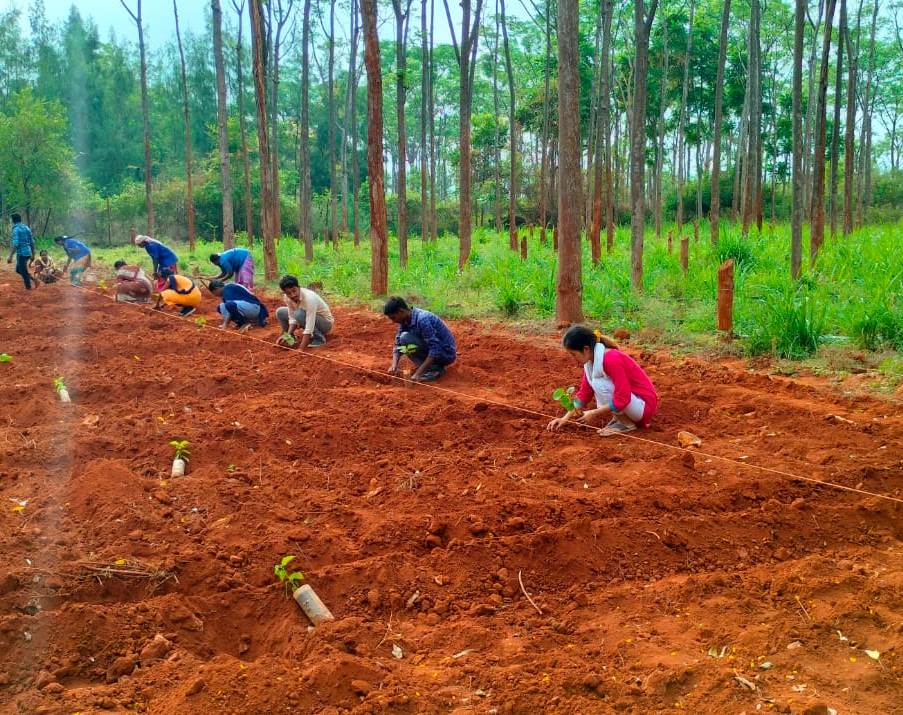
Project Overview – Planting Today for a Greener Tomorrow
Our vision is to plant over 100,000 hectares of trees by the year 2030 with the help of more than 200,000 small, marginal, tribal, and women farmers’ households.
These plantations not only reclaim land but also provide new sources of income for farmers through the sale of timber, fruit picking, and carbon credits. By converting wasteland or fallow land into productive green assets, the project provides environmental and economic benefits. Every plantation is assisted by GKF’s trained staff with field visits, technical support, and monitoring assistance.
The reforestation project is open for investment, don’t hesitate to contact us if you’re interested!
Water-Smart Farming – A Climate Solution, Not an Option
What is AWD (Alternate Wetting and Drying)?
AWD, Alternate Wetting and Drying, is a water-saving irrigation practice for paddy farming. It refers to rice paddies not being continuously flooded. Rather, water is given only when the crop requires it. This technique replicates the natural requirements of the crop, saves water, and minimizes harmful methane emissions.
In plain words, AWD is the cleaner, smarter, and more climate-friendly method of growing rice—without damaging yields, and with enormous gains to farmers and the planet.
While conventional rice farming involves flooding fields perpetually, AWD enables fields to dry intermittently. This saves water, reduces input expenses, and above all—prevents methane, a highly effective greenhouse gas. And yet, for many farmers, this revolutionary practice is not known or within reach.
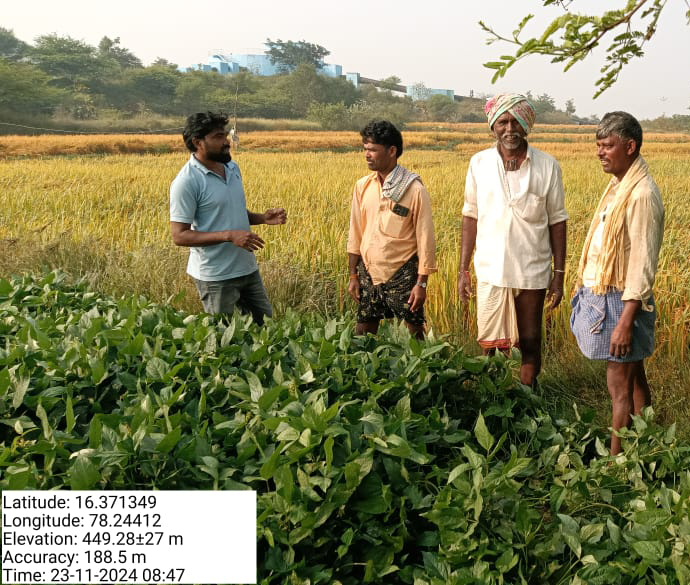
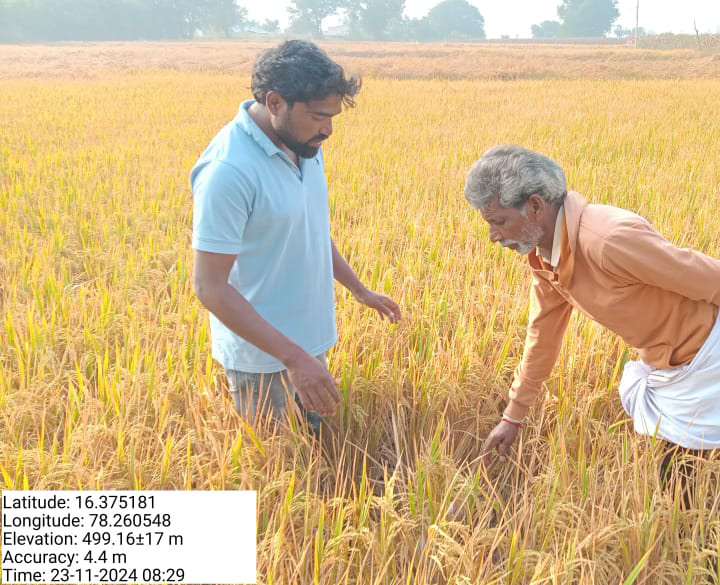
GKF Agroforestry's Commitment and AWD Action Plan
Sustainable agriculture is not just a policy – it’s a people’s movement, we believe at GKF Agroforestry Pvt. Ltd. Our AWD programs are being rolled out in six states of India — Telangana, Andhra Pradesh, Karnataka, Chhattisgarh, Odisha, and Maharashtra. with more than 2,01,000 farmers on 1,00,000 hectares joining this climate-smart revolution.
Our strategy is centered around:
- Educating farmers about when and how to irrigate intelligently
- Installing field-level water monitoring pipes
- Assisting them to transition to drying and rewetting cycles without affecting crop production
- Decreasing methane emissions, allowing farmers to receive carbon credits
- Assisting them with equipment, training, and market access
Through adopting AWD, we assist farmers in cutting down on irrigation requirements, saving electricity, and receiving payments from carbon markets—making climate action pay.With innovation, collaboration, and projects that serve a purpose, we’re creating an agricultural future that feeds the world, not fouls it. With each saved drop and avoided ton of methane, we inch closer to a climate-safe future.
Clean Cooking – A Basic Right, Not a Luxury
What is Clean Cooking?
Clean cooking is the use of energy-efficient stoves that burn fuel more completely and in a safer way, emitting less smoke and pollution. Contrary to the conventional mud stove or three-stone fire that consumes mostly firewood, clean cookstoves are developed to use less fuel, emit less, and enhance the health of users—particularly women and children.
It might appear basic, but for millions of rural India, clean cooking is beyond reach. Close to 43.3% of Indian households continue to rely on solid fuels such as wood, and more than 95% use mud clay stoves—unhealthy, unsafe, and unsustainable.
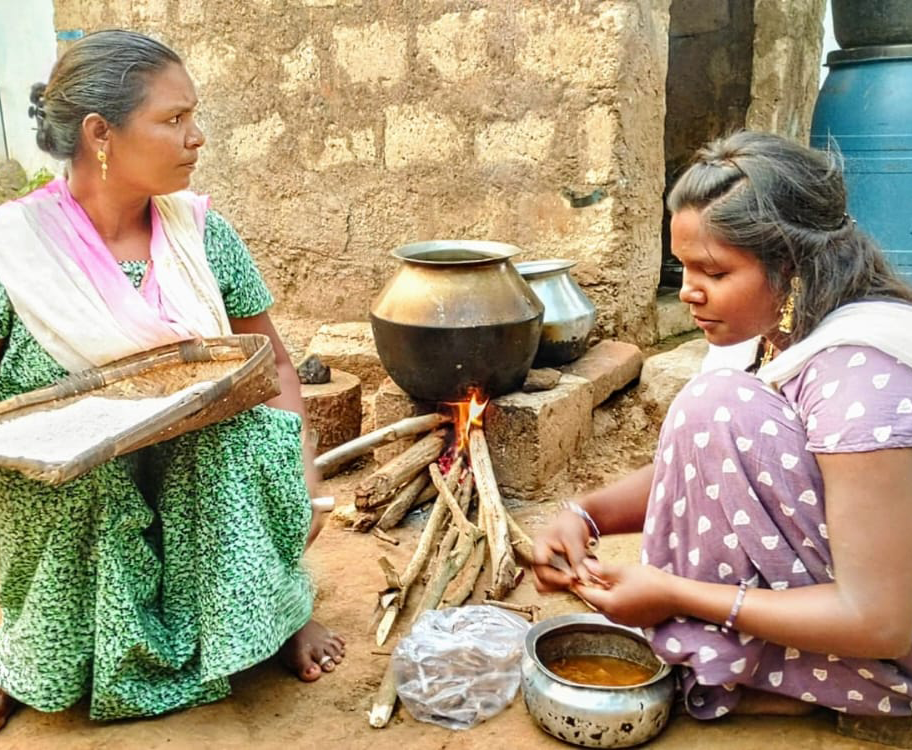
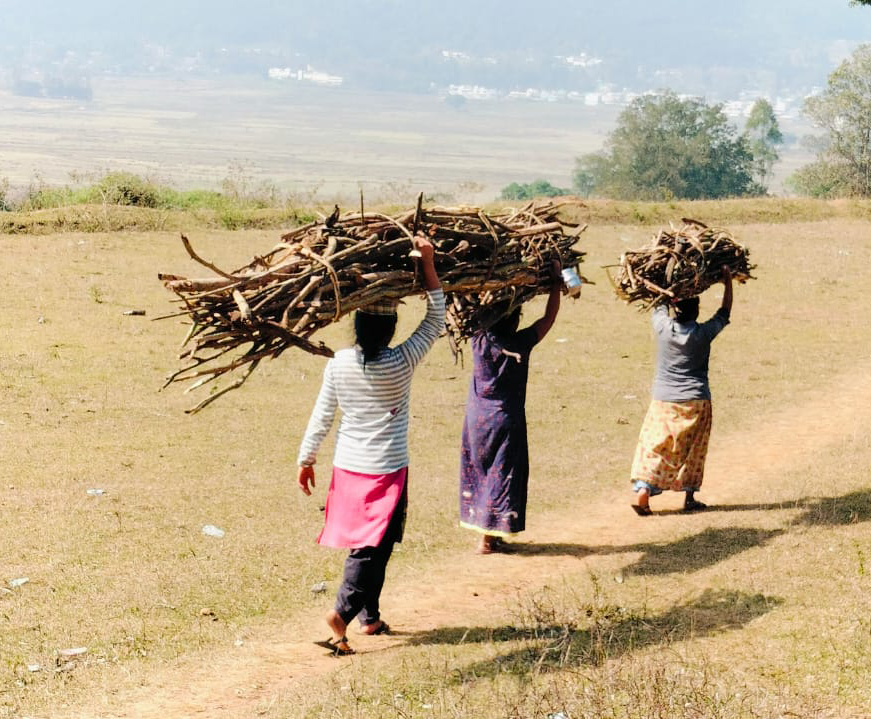
GKF Agroforestry's Dedication to Clean Cooking
At GKF Agroforestry Pvt. Ltd., we are committed to the belief that cooking must not kill. That’s why we’re rolling out an integrated Improved Cookstove Project in six Indian states — Telangana, Andhra Pradesh, Karnataka, Chhattisgarh, Odisha, and Maharashtra.With over 50,000 clean stoves distributed to households most in need.
Our method is simple but effective:
- Find the most affected rural and tribal communities.
- Equip them with scientifically tested, fuel-efficient cookstoves.
- Educate families—particularly women—on clean, safe cooking methods.
- Decrease demand for wood, reduce emissions, and enhance lives.
Biochar: A Climate-Resilient and Sustainable Agricultural Solution
What is Biochar?
Biochar is a stable, carbon-rich product made through the pyrolysis of organic waste—crop residues or forestry by-products—at high heat in low oxygen, similar to charcoal. However, biochar is utilized for soil application, providing a double dividend: long-term carbon sequestration and improved soil health. It is a nature-based climate solution that can transform agricultural waste into a significant climate asset.
GKF Agroforestry’s Vision and Commitment
At GKF Agroforestry, we see the immense potential of biochar in solving climate, soil, and livelihood issues—particularly in tribal and rural areas. Our mission is to create sustainable agricultural systems that are in harmony with national objectives as well as international climate agendas
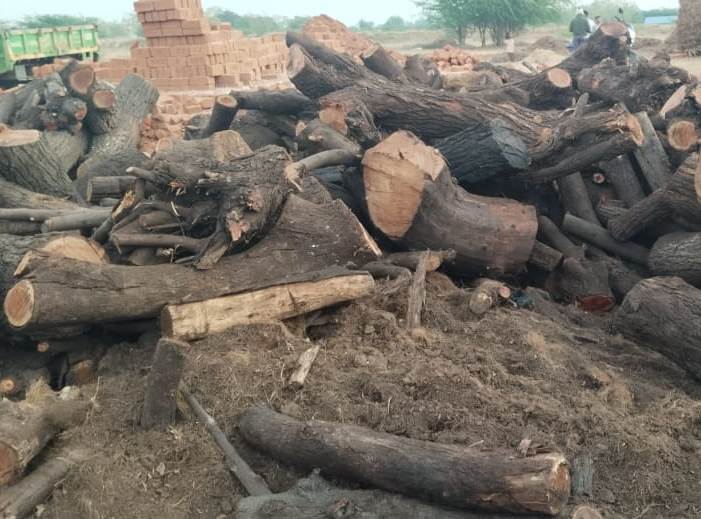
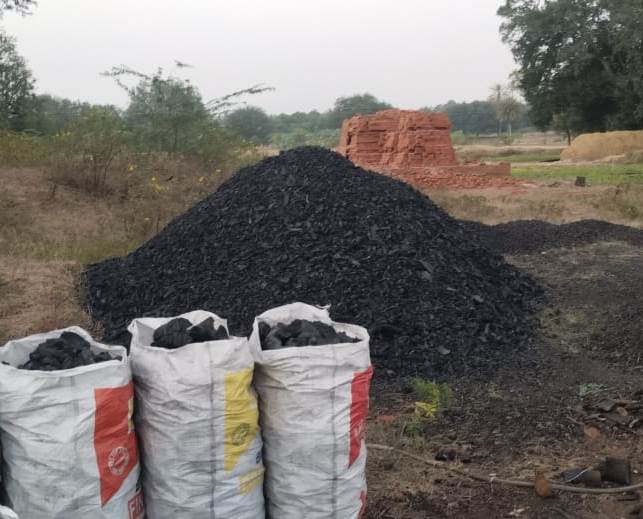
We are dedicated to
Implementing biochar-based initiatives in low-carbon areas throughout India, especially where farm residues are not being utilized.
Educating farming communities on sustainable biomass management and decentralized pyrolysis techniques.
Creating biochar as a carbon offset product under internationally accredited methodologies contributing to India’s Paris Agreement climate targets.
Keeping rural livelihoods improved through increased access to climate finance and better soil fertility.
